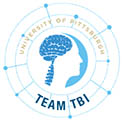The BIRCO website is provided as a public service by the Blast Injury Research Coordinating Office.
Information presented on this service not identified as protected by copyright is considered public information
and may be distributed or copied. Use of appropriate byline, photo, and image credits is requested.
For site management, information is collected for statistical purposes. This U.S. Government computer system uses
software programs to create summary statistics, which are used for such purposes as assessing what information is of
most and least interest, determining technical design specifications, and identifying system performance or problem areas.
Below is an example of the information collected based on a standard request for a World Wide Web document:
xxx.yyy.com -- [28/Jan/2008:00:00:01 -0500] "GET /Defense/news/nr012708.html HTTP/1.0" 200 16704 Mozilla 3.0/www.google.com
- xxx.yyy.com (or 123.123.23.12) -- this is the host name (or Internet protocol (IP) address) associated
with the requester (you as the visitor). In this case, the requester is coming from the xxx.yyy.net
address. Depending on the requester's method of network connection, the host name (or IP address) may
or may not identify the user's specific computer. Connections via many Internet Service Providers
(ISP) assign different IP addresses for each session, or only connect to the Internet via proxy servers,
so the host name may only identify the ISP. The host name (or IP address) may identify a specific
computer if that computer has a fixed IP address.
- [28/Jan/2008:00:00:01 -0500] -- this is the date and time of the request
- "GET /Defense/news/nr012708.html HTTP/1.0" -- this is the location of the requested file
- 200 -- this is the status code - 200 is OK - the request was filled
- 16704 -- this is the size of the requested file in bytes
- Mozilla 3.0 -- this identifies the type of browser software used to access the page, which indicates what
design parameters to use in constructing the pages
- www.google.com -- this indicates the last site the person visited, which indicates how people find the
requested file.
Requests for other types of documents use similar information. Unless otherwise stated,
no personally-identifiable information is collected.
For site security purposes and to ensure that this service remains available to all users, software programs are
employed to monitor network traffic to identify unauthorized attempts to upload or change information, or
otherwise cause damage.
Except for authorized law enforcement investigations and national security purposes, no other attempts are made
to identify individual users or their usage habits beyond DoD websites. Raw data logs are used for no other
purposes and are scheduled for regular destruction in accordance with
National Archives and Records Administration Guidelines*.
All data collection activities are in strict accordance with DoD
Directive 5240.01.
Web measurement and customization technologies (WMCT) may be used on this site to remember your online interactions,
to conduct measurement and analysis of usage, or to customize your experience. The Department of Defense does not
use the information associated with WMCT to track individual user activity on the Internet outside of Defense
Department websites, nor does it share the data obtained through such technologies, without your explicit consent,
with other departments or agencies. The Department of Defense does not keep a database of information obtained from
the use of WMCT. General instructions for how you may opt out of some of the most commonly used WMCT is available
at http://www.usa.gov/optout_instructions.shtml.
Unauthorized attempts to upload information or change information on this site are strictly prohibited and may be
punishable under the Computer Fraud and Abuse Act of 1987 and the National Information Infrastructure Protection
Act (18 U.S.C. § 1030).
If you have any questions or comments about the information presented here, please forward them to
our webmaster at USArmy.Detrick.USAMRDC.List.Webmaster@health.mil.
Use of Third-Party Tracking Service
This website uses the Google Analytics third-party tracking service to monitor site usage and trends.
We use the information compiled by Google Analytics to help us make our site more useful to you.
Through this service, we are able to monitor the number of visitors to the site, which features/pages
are most popular, the general location (region/country/city) of site visitors, and visitors' web browser
type and version. These metrics are not tied to any specific site visitor, but are instead used for
aggregate visit analysis.
Google Analytics utilizes web browser "cookies" to track non-personally identifiable information about
visitors. You may decline Google's cookies by setting your web browser's preferences to disallow third-party
cookies. If you choose to allow the usage of third-party cookies, Google will use them to collect general
information about your visit (including your IP address, pages visited, and documents downloaded), which
they will store on their servers in the United States. Google's general privacy policy is available on the
Google Privacy Policy page. Additional information about
Google Analytics data collection and usage is available on the
Google Analytics Privacy Policy page.
 An official website of the United States government
An official website of the United States government
 ) or https:// means you've safely connected to the .mil website. Share sensitive information only on official, secure websites.
) or https:// means you've safely connected to the .mil website. Share sensitive information only on official, secure websites.



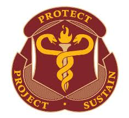








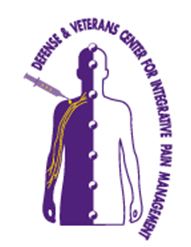 DVCIPM's mission is to leverage the best available evidence, clinical expertise, and collaboration to develop and communicate
consensus recommendations in support of Air Force, Army, Navy, and VA pain management practice, education, and research.
DVCIPM's mission is to leverage the best available evidence, clinical expertise, and collaboration to develop and communicate
consensus recommendations in support of Air Force, Army, Navy, and VA pain management practice, education, and research.
 EACE is the leading advocate for research and treatment of DoD and VA patients with extremity trauma and amputation. Working with
TRICARE, the Military Health System, VA, and other Centers of Excellence, the EACE will lead efforts to enhance collaboration between
the DoD and the VA extremity trauma and amputation care providers and conduct scientific research to minimize the effects of traumatic
injuries and improve clinical outcomes.
EACE is the leading advocate for research and treatment of DoD and VA patients with extremity trauma and amputation. Working with
TRICARE, the Military Health System, VA, and other Centers of Excellence, the EACE will lead efforts to enhance collaboration between
the DoD and the VA extremity trauma and amputation care providers and conduct scientific research to minimize the effects of traumatic
injuries and improve clinical outcomes.
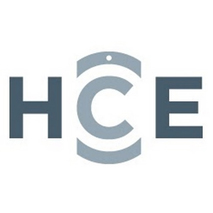 HCE fosters and promotes the prevention, diagnosis, mitigation, treatment, rehabilitation, and research of hearing loss
and auditory injury. The goal is to reduce the tangible and intangible costs of hearing loss and auditory injuries among
US military personnel and Veterans. HCE works with the VA and leads the cooperative effort to meet its goal.
HCE fosters and promotes the prevention, diagnosis, mitigation, treatment, rehabilitation, and research of hearing loss
and auditory injury. The goal is to reduce the tangible and intangible costs of hearing loss and auditory injuries among
US military personnel and Veterans. HCE works with the VA and leads the cooperative effort to meet its goal.
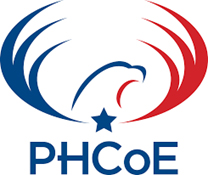 PHCoE is uniquely positioned to collaborate across the DoD, VA, and other federal agencies to provide leadership and expertise,
inform policy, and drive improvements in psychological health outcomes. The center maintains five core strategic priorities:
support the services and combatant commands; improve care quality; increase access, reduce barriers, and encourage optimal use
of psychological health resources; advance the science of psychological health; and foster organizational development.
PHCoE is uniquely positioned to collaborate across the DoD, VA, and other federal agencies to provide leadership and expertise,
inform policy, and drive improvements in psychological health outcomes. The center maintains five core strategic priorities:
support the services and combatant commands; improve care quality; increase access, reduce barriers, and encourage optimal use
of psychological health resources; advance the science of psychological health; and foster organizational development.
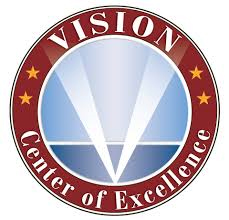 VCE leads and advocates for programs and initiatives with the following three inter-related goals: to improve vision health,
optimize readiness, and enhance quality of life for Service members and Veterans.
VCE leads and advocates for programs and initiatives with the following three inter-related goals: to improve vision health,
optimize readiness, and enhance quality of life for Service members and Veterans.









